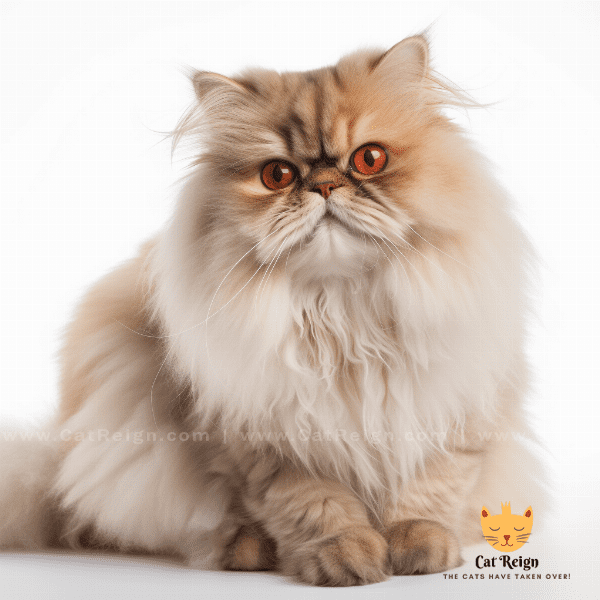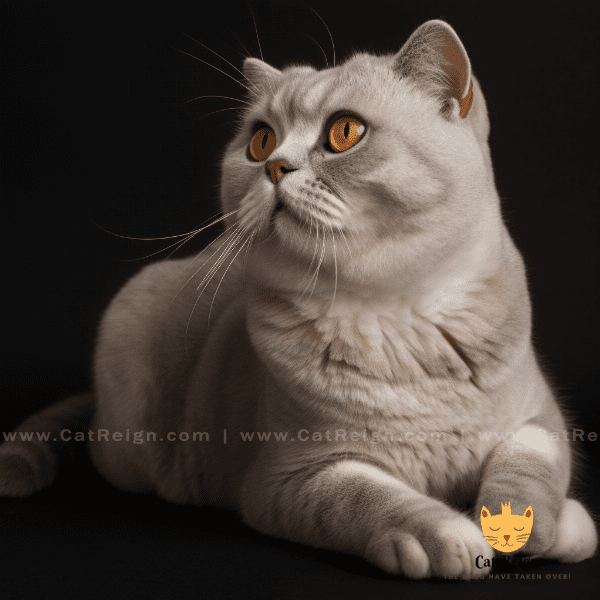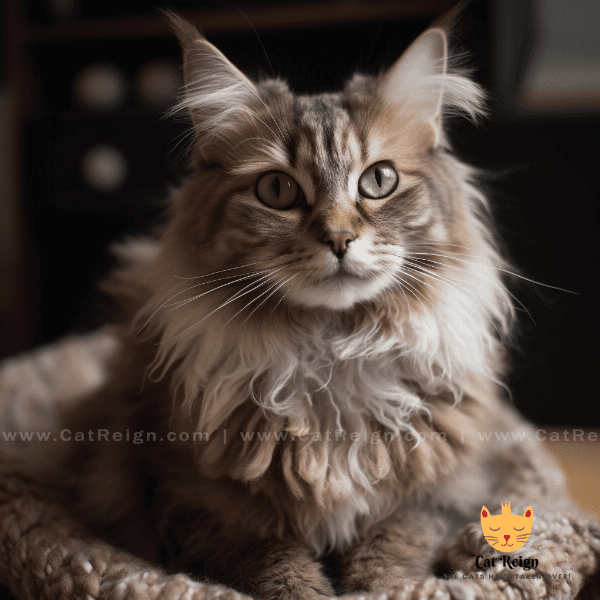Table of Contents
- “Origin and History of Siberian Cats”
- “Distinctive Characteristics of Siberian Cats”
- “Siberian Cat Personality and Temperament”
- “Grooming and Coat Care for Siberian Cats”
- “Feeding and Nutrition for Siberian Cats”
- “Exercise and Playtime for Siberian Cats”
- “Health Issues to Watch for in Siberian Cats”
- “Training and Behavioral Tips for Siberian Cats”
- “Socializing Your Siberian Cat with Other Pets”
- “Finding the Perfect Siberian Cat for Your Home”
Origin and History of Siberian Cats
Siberian cats are a breed that has been around for centuries. They originated in the cold, snowy regions of Siberia, Russia, and were initially bred for their ability to hunt rodents and keep homes free of pests. Over time, the Siberian cat became a beloved pet in Russian households due to its friendly demeanor and striking appearance.
Early Breeding and Domestication
The exact date of the Siberian cat’s domestication is unclear, but some evidence suggests that they were first kept as pets as early as the 16th century. At the time, Russian farmers relied heavily on their cats to keep rodents out of their barns and homes. Siberian cats were especially prized for their thick coats, which protected them from the harsh winter climate.
Siberian Cats in Folklore and Art
Siberian cats have a rich history in Russian folklore and art. They are often depicted in traditional Russian paintings and literature, and many stories feature the brave and loyal Siberian cat as the hero. In Russian folklore, the cat is also thought to bring good luck and prosperity to its owner.
Introduction to the Western World
It wasn’t until the late 19th century that the Siberian cat was introduced to the Western world. In 1871, a Siberian cat was exhibited at the Crystal Palace cat show in London, England. However, it wasn’t until the fall of the Soviet Union in the 1990s that Siberian cats began to be imported to the United States and other countries in larger numbers.
Recognition as a Distinct Breed
In 1987, the first Siberian cat was imported to the United States. It wasn’t until 1990 that the Siberian cat was recognized as a distinct breed by the International Cat Association (TICA). Since then, the breed has gained in popularity due to its friendly personality, striking appearance, and hypoallergenic qualities.
Overall, the history of Siberian cats is fascinating and highlights the importance of cats in Russian culture and society. From their humble beginnings as hunters and protectors to their current status as beloved pets, Siberian cats continue to capture the hearts of cat lovers around the world.
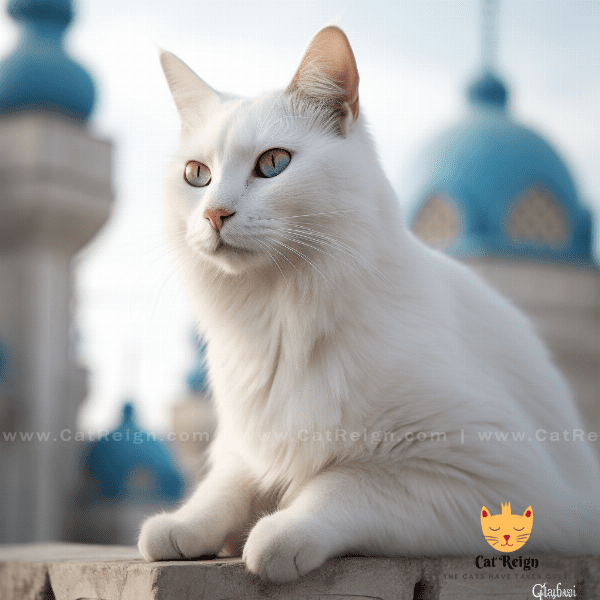
Distinctive Characteristics of Siberian Cats
Siberian cats are known for their striking appearance, as well as their friendly personalities. Here are some of the distinctive characteristics that set them apart from other Cat breeds.
Size and Build
Siberian cats are a medium to large-sized breed, with males typically weighing between 12 and 18 pounds and females weighing between 8 and 12 pounds. They have a muscular build and a thick, heavy coat that provides insulation in cold climates. Their large, rounded paws are covered in fur, making them well-suited to walking on snow and ice.
Coat and Color
The Siberian cat’s coat is one of its most distinctive features. It is thick, soft, and water-resistant, and can be any color or pattern, from solid white or black to tabby, tortoiseshell, or calico. Some Siberian cats even have a “lynx point” pattern, with striped legs and a mottled body.
Hypoallergenic Qualities
One of the most unique features of Siberian cats is their hypoallergenic qualities. While no cat breed is completely hypoallergenic, many people with allergies find that they can tolerate Siberian cats well. This is because they produce less of the Fel d 1 protein, which is the main allergen in cats.
Intelligence and Playfulness
Siberian cats are known for their intelligence and playful personalities. They are curious and energetic, and enjoy playing games with their owners. They are also very social and enjoy interacting with other cats and people.
Health and Longevity
Siberian cats are generally healthy and have a long lifespan, with some living to be 20 years or older. However, they are prone to certain health issues, such as hypertrophic cardiomyopathy (a heart condition) and hip dysplasia (a joint disorder). It is important to choose a reputable breeder and have your Siberian cat regularly checked by a veterinarian to ensure that they stay healthy and happy.
In conclusion, Siberian cats have a unique set of characteristics that make them stand out from other cat breeds. From their thick, water-resistant coats to their hypoallergenic qualities and playful personalities, Siberian cats are a wonderful choice for anyone looking for a loyal and loving companion.
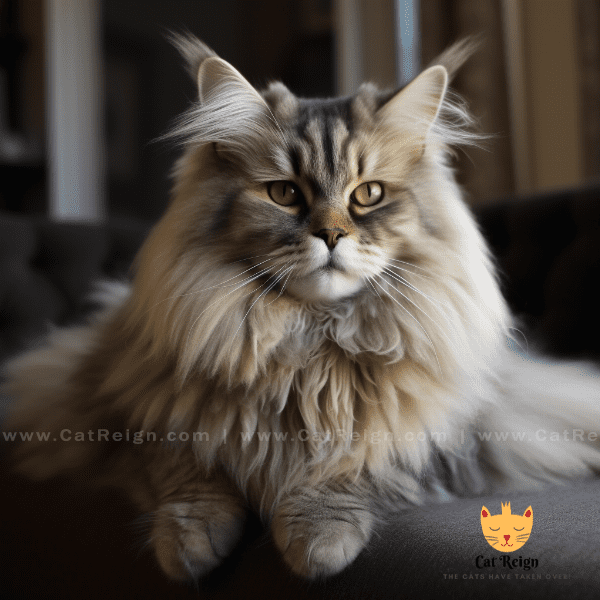
Siberian Cat Personality and Temperament
Siberian cats are known for their friendly, affectionate personalities and are often referred to as “gentle giants.” Here are some of the key traits that define the Siberian cat’s personality and temperament.
Affectionate and Loyal
Siberian cats are incredibly affectionate and love nothing more than spending time with their owners. They are often described as “dog-like” in their loyalty and devotion, and will follow their owners from room to room. Many Siberian cats are also known for their love of cuddling and will happily curl up in their owner’s lap for a nap.
Intelligent and Inquisitive
Siberian cats are intelligent and curious creatures. They enjoy exploring their environment and figuring out how things work. They are also very adaptable and can adjust to new situations quickly, making them great travel companions.
Playful and Energetic
Siberian cats have a playful and energetic personality. They love to play games and will entertain themselves for hours with toys and other objects. They are also great at entertaining their owners and enjoy interactive playtime with their human companions.
Social and Good with Children
Siberian cats are social creatures and enjoy the company of other cats and humans. They are particularly good with children and make excellent family pets. Their gentle nature and tolerance for children’s playful antics make them a great choice for families with young kids.
Vocal and Communicative
Siberian cats are vocal creatures and are not afraid to express their opinions. They have a wide range of vocalizations, from purring and trilling to chirping and meowing. They are also very communicative and will often use body language to convey their feelings.
In conclusion, Siberian cats are known for their friendly and affectionate personalities, as well as their playful and energetic nature. They make great family pets and are particularly good with children. If you are looking for a loyal and loving companion, the Siberian cat may be the perfect choice for you.
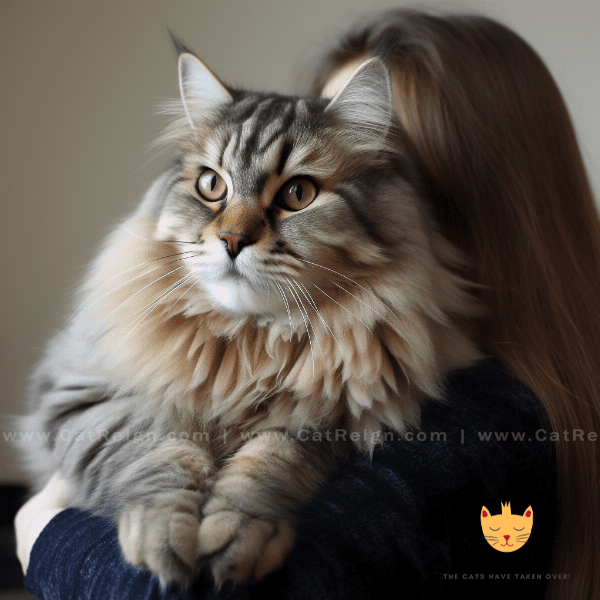
Grooming and Coat Care for Siberian Cats
Siberian cats have a thick, luxurious coat that requires regular grooming to keep it in good condition. Here are some tips for keeping your Siberian cat’s coat healthy and shiny.
Brushing and Combing
Siberian cats have a double coat, with a soft, downy undercoat and a longer, coarser topcoat. They shed their coat twice a year, so it is important to brush them regularly to prevent mats and tangles from forming. A slicker brush or a wide-tooth comb is ideal for grooming your Siberian cat’s coat.
Bathing and Drying
Siberian cats are generally clean animals and do not require frequent bathing. However, if your cat gets into something messy, you may need to give them a bath. Use a mild shampoo that is specifically formulated for cats, and rinse thoroughly to avoid leaving any soap residue on their coat. After bathing, dry your cat thoroughly with a towel or a hairdryer on a low setting.
Nail Care
Siberian cats have large, sharp claws that they use for hunting and climbing. It is important to keep their nails trimmed to prevent them from getting too long and causing discomfort or injury. Use a pair of cat nail clippers to trim the tips of their claws, being careful not to cut into the quick.
Ear and Eye Care
Siberian cats have large, expressive eyes and a wide, open face. They are prone to eye discharge, which can be easily cleaned with a damp cloth. Their ears should also be checked regularly for signs of infection or irritation. Use a cotton ball or a soft cloth to clean the outer ear, and avoid inserting anything into the ear canal.
Dental Care
Siberian cats are prone to dental issues, such as gum disease and tooth decay. To keep their teeth healthy, it is important to brush them regularly with a cat-specific toothpaste and toothbrush. You can also provide your cat with dental treats or toys to help clean their teeth and freshen their breath.
Overall, grooming and coat care are essential to keeping your Siberian cat healthy and happy. Regular brushing, nail trimming, and dental care will help keep your cat looking and feeling their best.
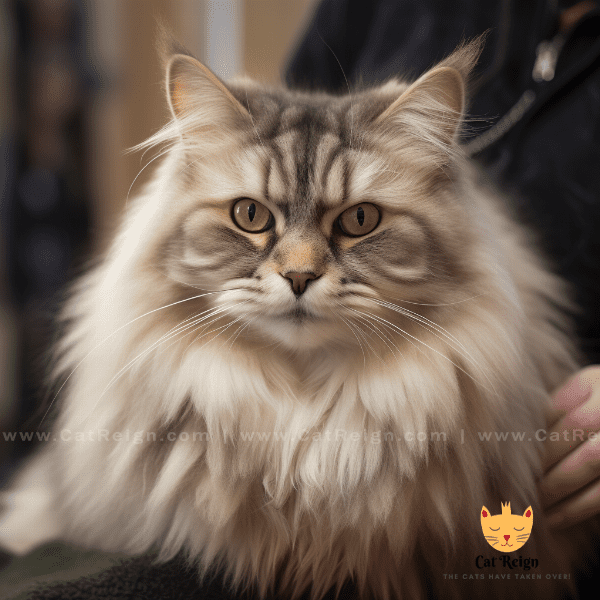
Feeding and Nutrition for Siberian Cats
Proper nutrition is essential to keeping your Siberian cat healthy and happy. Here are some tips for feeding your cat a healthy diet.
Choosing the Right Food
Siberian cats are carnivores and require a diet that is high in animal protein. Look for cat food that lists a high-quality animal protein source, such as chicken, turkey, or fish, as the first ingredient. Avoid foods that contain fillers, such as corn or wheat, as they do not provide the necessary nutrients for your cat.
Portion Control
Siberian cats are prone to overeating and obesity, so it is important to monitor their food intake and provide them with the appropriate portion sizes. Your cat’s feeding schedule will depend on their age, weight, and activity level. Consult with your veterinarian to determine the best feeding schedule and portion sizes for your cat.
Water Intake
Siberian cats require plenty of fresh, clean water to maintain their health. Make sure that your cat has access to clean water at all times, and change their water bowl regularly to prevent bacteria from forming.
Supplements and Treats
While a high-quality cat food should provide your Siberian cat with all of the necessary nutrients, you may want to consider adding supplements or treats to their diet. Omega-3 fatty acids, for example, can help keep your cat’s coat healthy and shiny. However, it is important to consult with your veterinarian before adding any supplements or treats to your cat’s diet.
Special Dietary Needs
If your Siberian cat has any special dietary needs, such as food allergies or sensitivities, it is important to choose a diet that meets their specific needs. Your veterinarian can help you determine the best diet for your cat and provide guidance on any necessary dietary restrictions.
In conclusion, a healthy diet is essential to keeping your Siberian cat healthy and happy. By choosing the right food, monitoring portion sizes, and providing plenty of fresh water, you can help ensure that your cat stays healthy for years to come.
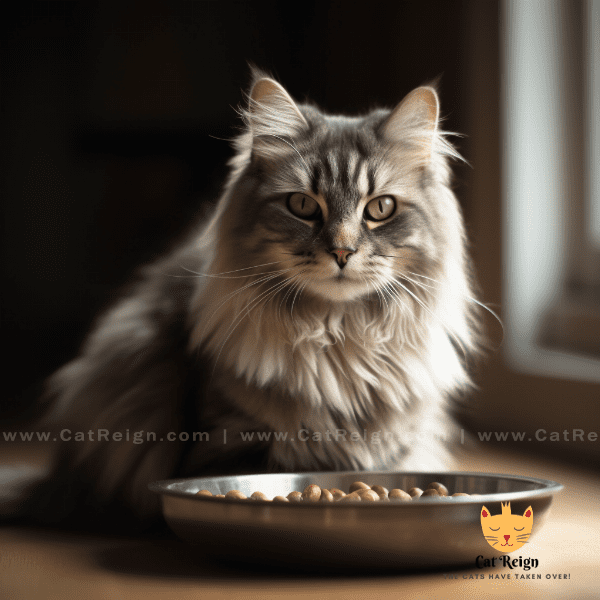
Exercise and Playtime for Siberian Cats
Siberian cats are active and playful animals that require plenty of exercise and playtime to keep them healthy and happy. Here are some tips for providing your Siberian cat with the exercise and playtime they need.
Indoor vs. Outdoor Play
Siberian cats can be kept both indoors and outdoors, but it is generally safer to keep them indoors, especially in urban areas. If you choose to keep your cat indoors, make sure that they have plenty of toys and opportunities for play to keep them stimulated and active.
Toys and Activities
Siberian cats enjoy a variety of toys and activities, including scratching posts, climbing trees, and interactive toys. Puzzle toys and treat dispensers can also provide mental stimulation and encourage your cat to play and explore.
Exercise and Playtime Schedule
Siberian cats require daily exercise and playtime to keep them healthy and happy. Set aside time each day to play with your cat and provide opportunities for exercise. This can include playing with toys, engaging in interactive play, or even taking your cat for a walk on a leash.
Encouraging Activity
Encourage your Siberian cat to be active by providing them with plenty of opportunities for play and exercise. Consider placing toys and climbing structures throughout your home to encourage your cat to explore and play. You can also hide treats around the house for your cat to find, providing both mental and physical stimulation.
Importance of Playtime
Playtime is not just important for your cat’s physical health but also their mental health. Regular play and exercise can help reduce stress and anxiety in cats, as well as promote a healthy weight and prevent boredom.
In conclusion, exercise and playtime are essential to keeping your Siberian cat healthy and happy. By providing plenty of toys and activities, setting aside time for play each day, and encouraging your cat to be active, you can help ensure that your cat stays healthy and happy for years to come.
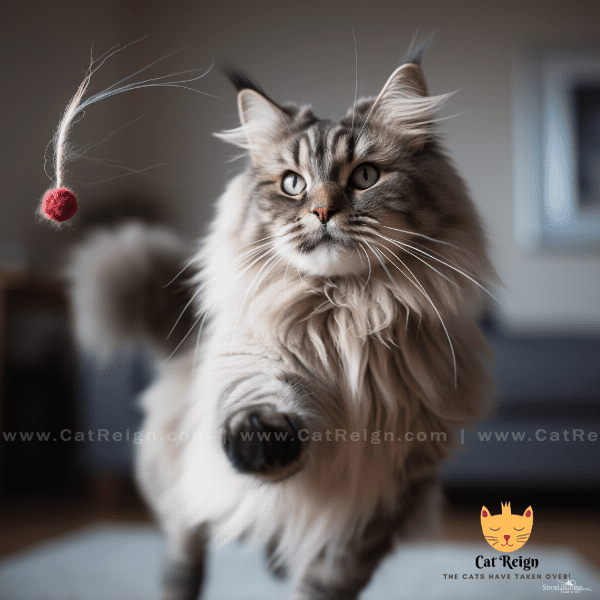
Health Issues to Watch for in Siberian Cats
Like all cat breeds, Siberian cats are prone to certain health issues that owners should be aware of. Here are some of the health issues to watch for in Siberian cats.
Hypertrophic Cardiomyopathy (HCM)
HCM is a common heart condition in cats, and Siberian cats are particularly prone to this condition. HCM causes the walls of the heart to thicken, which can lead to heart failure if left untreated. It is important to have your Siberian cat regularly checked by a veterinarian to monitor their heart health.
Hip Dysplasia
Hip dysplasia is a joint disorder that is common in large cat breeds, including Siberian cats. This condition can cause pain and discomfort, and may require surgery in severe cases. Regular exercise and maintaining a healthy weight can help prevent hip dysplasia from developing.
Allergies
While Siberian cats are known for their hypoallergenic qualities, some individuals may still be allergic to them. Symptoms of allergies in cats include sneezing, coughing, and watery eyes. If you suspect that your cat may be causing allergies, consult with your veterinarian for advice.
Dental Issues
Siberian cats are prone to dental issues, such as gum disease and tooth decay. Regular brushing and dental care can help prevent these issues from developing. Your veterinarian may also recommend a dental cleaning or other dental treatment if necessary.
Obesity
Siberian cats are prone to overeating and obesity, which can lead to a variety of health issues, including diabetes, heart disease, and joint problems. It is important to monitor your cat’s food intake and provide them with regular exercise to help maintain a healthy weight.
In conclusion, while Siberian cats are generally healthy, there are certain health issues that owners should be aware of. Regular check-ups with a veterinarian, maintaining a healthy weight, and providing proper dental care can help prevent these issues from developing. By being aware of these potential health issues, you can help ensure that your Siberian cat stays healthy and happy for years to come.
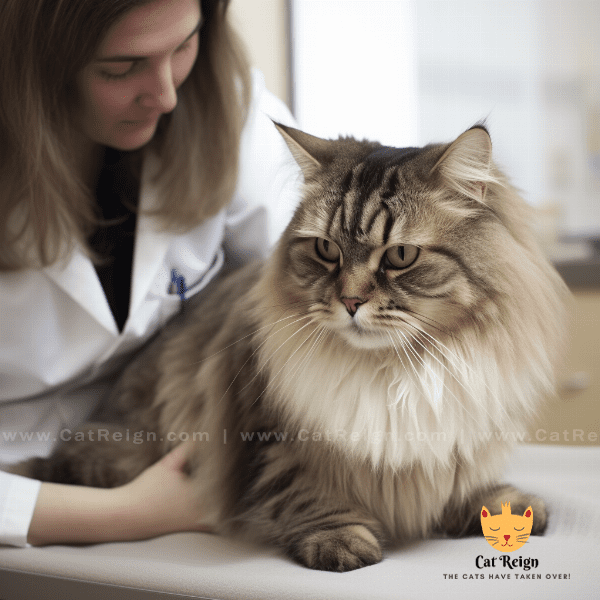
Training and Behavioral Tips for Siberian Cats
Siberian cats are intelligent and trainable animals, but they also have their own unique personalities and behaviors. Here are some tips for training and managing the behavior of your Siberian cat.
Positive Reinforcement
Siberian cats respond well to positive reinforcement training, which involves rewarding good behavior with treats, toys, or praise. Avoid using punishment or negative reinforcement, as this can lead to fear and anxiety in your cat.
Litter Box Training
Siberian cats are generally clean animals and are easy to litter box train. Provide your cat with a clean litter box in a quiet, private area of your home. If your cat has any issues with using the litter box, consult with your veterinarian for advice.
Socialization
Siberian cats are social creatures and enjoy the company of other cats and humans. It is important to socialize your cat from a young age to help them develop positive relationships with other animals and people.
Scratching Behavior
Siberian cats have a natural instinct to scratch, which can be a problem if they scratch furniture or other household items. Provide your cat with a scratching post or other appropriate scratching surface to redirect their behavior. You can also apply soft claws or other nail caps to their claws to prevent damage to furniture.
Managing Aggression
Siberian cats are generally friendly and non-aggressive, but they can become aggressive if they feel threatened or provoked. It is important to avoid rough play and to give your cat plenty of space and alone time when necessary.
In conclusion, Siberian cats are intelligent and trainable animals that respond well to positive reinforcement training. By providing your cat with proper litter box training, socialization, and scratching surfaces, and managing their aggression and behavior, you can help ensure that they are well-behaved and happy members of your household.
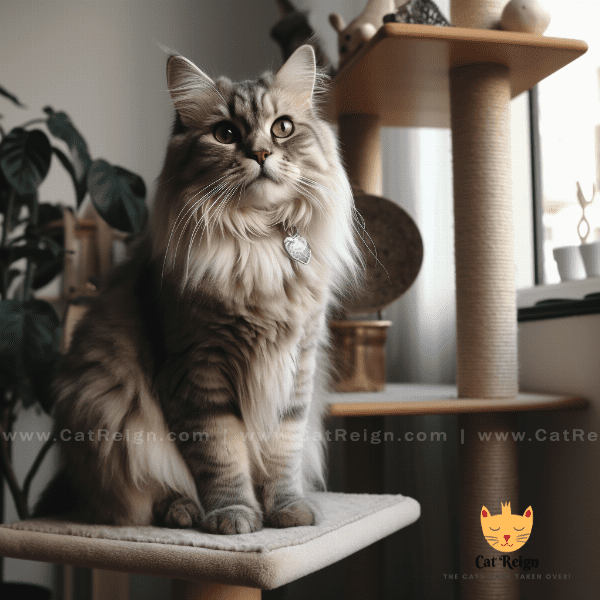
Socializing Your Siberian Cat with Other Pets
Siberian cats are generally social animals and can get along well with other pets, including cats and dogs. However, proper socialization is important to ensure that your pets coexist peacefully. Here are some tips for socializing your Siberian cat with other pets.
Introducing Your Pets
When introducing your Siberian cat to a new pet, it is important to do so slowly and gradually. Keep your pets in separate rooms at first, allowing them to sniff and become familiar with each other’s scent. Gradually increase their interaction time, supervised at all times, until they are comfortable around each other.
Providing Separate Spaces
While your pets may eventually become comfortable around each other, it is important to provide them with separate spaces where they can retreat to if needed. Provide your cat with a designated space, such as a cat tree or bed, where they can relax and feel safe.
Managing Playtime
When your pets are comfortable around each other, you can encourage them to play together. However, it is important to supervise their playtime to ensure that it does not become too rough or aggressive. Provide your pets with appropriate toys and play structures to encourage positive playtime.
Training Your Pets
Training your pets can also help promote positive interactions between them. Teach your dog to respect your cat’s space and not to chase or bark at them. Similarly, teach your cat to respect your dog’s space and not to scratch or hiss at them.
Seeking Professional Help
If your pets are having trouble getting along, it may be necessary to seek professional help. A veterinarian or animal behaviorist can provide guidance on how to properly socialize your pets and manage any behavior issues.
In conclusion, socializing your Siberian cat with other pets requires patience and proper introduction techniques. By providing separate spaces, managing playtime, and training your pets, you can help ensure that they coexist peacefully. If necessary, seek professional help to address any behavior issues that may arise.
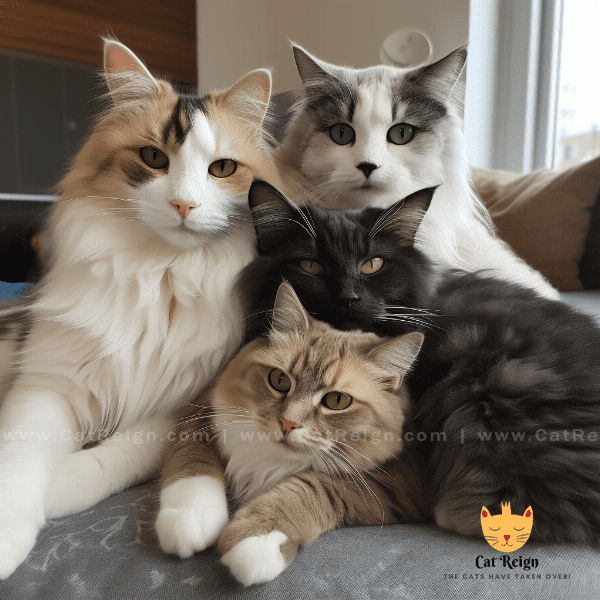
Finding the Perfect Siberian Cat for Your Home
Siberian cats are wonderful pets that make great additions to any household. However, finding the perfect Siberian cat for your home requires careful consideration and planning. Here are some tips for finding the perfect Siberian cat for your home.
Researching Breeder
When looking for a Siberian cat, it is important to find a reputable breeder who can provide you with a healthy and well-socialized kitten. Research potential breeders thoroughly, asking for references and visiting their facilities if possible.
Considering Personality Traits
Siberian cats have their own unique personalities and temperaments, so it is important to consider their personality traits when choosing a kitten. Some may be more outgoing and playful, while others may be more reserved and calm. Choose a kitten whose personality fits well with your lifestyle and household.
Health History
Make sure to ask the breeder about the health history of the kitten’s parents and any potential health issues that may arise. A healthy kitten is essential to ensuring that they live a long and happy life.
Vaccinations and Microchipping
Ensure that the breeder has provided the kitten with all necessary vaccinations and has microchipped them for identification purposes. This will help keep your kitten healthy and safe.
Consider Adoption
Consider adopting a Siberian cat from a shelter or rescue organization. These cats are often in need of loving homes and can make wonderful companions.
In conclusion, finding the perfect Siberian cat for your home requires careful consideration and planning. Research potential breeders, consider personality traits, and ask about health history and vaccinations. Consider adoption as an option as well. By taking these steps, you can find the perfect Siberian cat to bring joy and companionship to your home.


